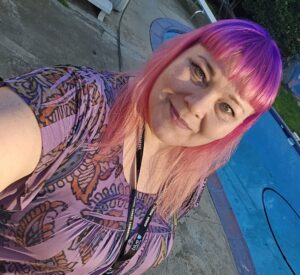Why Every Moment Needs an Outcome
“Would you tell me, please, which way I ought to go from here?”
“That depends a good deal on where you want to get to,” said the Cat.
“I don’t much care where…” said Alice.
“Then it doesn’t matter which way you go,” said the Cat.
“–so long as I get SOMEWHERE,” Alice added as an explanation.
“Oh, you’re sure to do that,” said the Cat, “if you only walk long enough.” (Alice in Wonderland)
————
One of the biggest time-wasters in our lives is not distraction—it’s drifting. Drifting is non-purposeful, non-intentional, not-thought-out movement. Drifting into your day without a clear outcome. Drifting into conversations without knowing what you want to get from them. Drifting into work tasks because they seem important, or are the first thing you notice when you come in, or are the thing that will make someone else happy, without checking whether they actually move you forward.
The truth is: when you don’t know your outcome, almost anything can steal your attention. But when you do, your focus sharpens. You become more efficient, more intentional, and ultimately, more at peace with how you’re spending your time.
What Do We Mean by “Outcome”?
An outcome is simply a result you intend to create.
Outcomes live at every level:
- Your day: “By the end of today, I want to have completed X, connected with Y, and left space for rest.”
- This hour: “In this block, I want to draft the first half of the proposal.”
- This week or month: “By the end of this time frame, I want clarity on our direction and progress toward it.”
- Conversations: “I want to understand their needs and offer two possible solutions.”
When you frame life this way, you stop just “doing” and start creating results.
The Efficiency Advantage
Knowing your outcome gives you a filtering mechanism. If a task, email, or request doesn’t serve your outcome, it’s easier to say no—or at least “not now.” You don’t waste mental energy deciding what to do in the moment; the outcome already points you there.
It’s like entering a grocery store with a shopping list. Without the list, you wander the aisles, picking up things you may or may not need. With it, you head straight to the items that matter, get out faster, and avoid overspending.
Time Management Through Outcomes
Time management isn’t really about managing time—it’s about managing decisions. And outcomes give you a decision-making compass.
- When you’re overwhelmed by too many tasks: Ask, “Which one moves me closer to the outcome I care about right now?”
- When interruptions show up: Ask, “Does this serve my outcome, or is it a detour?”
- When your day feels fragmented: Reconnect with the outcome of the next block of time. Even 30 minutes can have a powerful result if you know what you want from it.
A Practice for Everyday Life
Here’s a simple habit:
- Start your day with an outcome. Ask, “What will make today successful for me?”
- Set outcomes for your time blocks. Before diving into work, define the result you want by the end of the session.
- Clarify outcomes in conversations. Before a meeting or even a personal talk, know what you want to walk away with.
- Check in often. When you feel scattered, pause and ask, “What’s my outcome here?”
You’ll be amazed how much lighter decision-making feels when you practice this.
The bottom line: Outcomes turn action into direction (you aren’t just walking; you are walking to a destination). Outcomes transform time from something that “happens” to you into something you actively shape. Every task, every block of your day, every interaction—when guided by an outcome—moves you forward instead of sideways.







